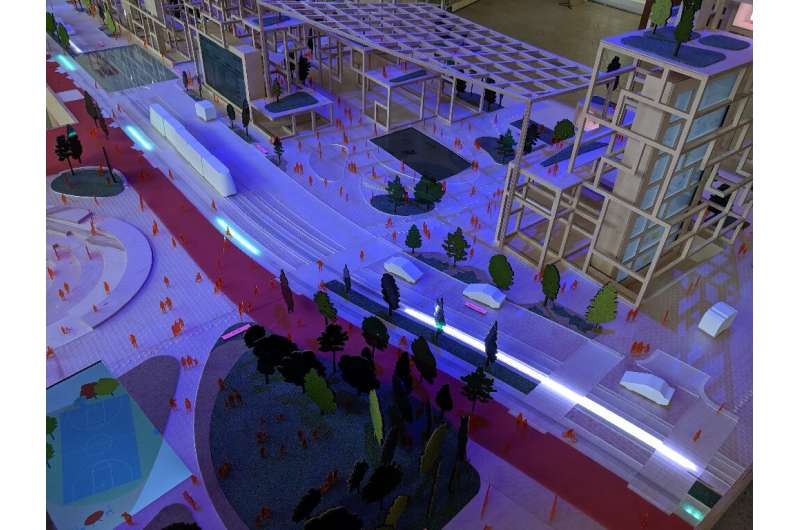'From the internet up': Toronto plans futuristic bayfront

Toronto authorities gave a provisional green light Thursday to plans by a tech company in the Google empire to build a futuristic neighborhood on a strip of lakefront that will include robots for delivering mail and collecting garbage.
Sidewalk Labs, a subsidiary of Google's parent Alphabet, has proposed building a carbon-neutral community "from the internet up," where tall buildings would be made of timber and technology would be geared to catering to every aspect of modern living.
Permission for the 12-acre (five-hectare) site in the city's bayfront area is dependent on a final evaluation, before a formal rubber stamp in March 2020 if all goes well.
Waterfront Toronto chairman Stephen Diamond said in a statement he was pleased to be making progress but added: "Let me be clear: this is not a done deal. There is still much work to do before a final decision."
The project envisages heated sidewalks and bike paths that melt snow in winter, street-side parking that can be pre-booked, and underground robots that distribute parcels and manage waste.
Sensors would also measure pedestrians' gait, water consumption and trash production—all in hopes of better understanding and adapting to the dynamics of urban life.
The future is now
Prime Minister Justin Trudeau and other proponents have heralded the opportunity to create an innovation hub where tens of thousands of people would live and work in Canada's largest metropolis.

But, in an era of global concern over data protection, the blueprint has faced criticism over the potential for lost privacy and data misuse, as well as over the privatization of public services.
The more controversial sections of a draft proposal released in June that provoked a backlash have been dropped.
"Sidewalk Labs listened to our concerns, and those of the public, and has confirmed that it will make significant changes to its proposals," said Diamond.
The compromise includes reducing the size of the project on the land overlooking Lake Ontario—one of the priciest on the continent.
The company also dropped its demands to make the project conditional on a new transit link and to control all data collected in the neighborhood, and agreed to adhere to Canadian privacy laws.
One or more real estate developers selected through competitive bidding will also now partner with Sidewalk Labs, instead of the company going it alone.
Earlier this week, the Globe and Mail reported on a leaked confidential Sidewalk Labs document from 2016 that envisioned it having powers to levy its own property taxes, police the community and provide public services such as charter schools, transit and private road infrastructure.
It was peppered with references to Disney theme parks and noted futurist Buckminster Fuller, who designed the Montreal Biosphere for the 1967 World Fair.
Sidewalk Labs spokeswoman Keerthana Rang, however, told the newspaper the document merely brought together elements of an early and "wide-ranging brainstorming process" for use in a pitch.
© 2019 AFP



















